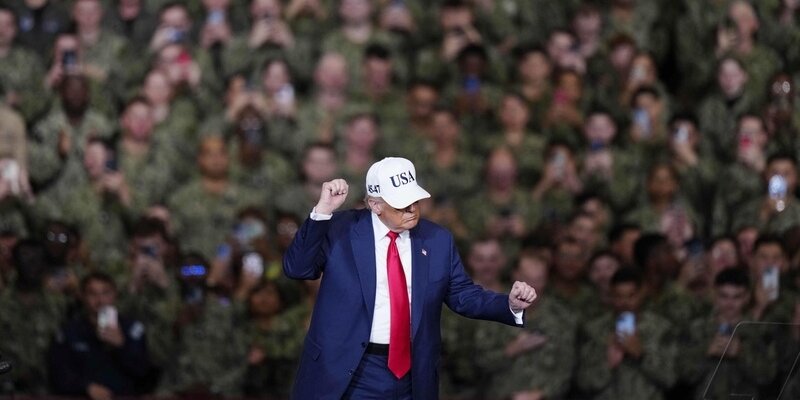U.S. to Expand Sanctions on Far-Right Extremists and Settler Groups, Senior State Dept. Official Says
The United States is considering imposing sanctions on Amana, one of the key organizations in Israel’s settlement enterprise, which is involved in almost every aspect of the West Bank settlements. The Director of the Office of Economic Sanctions Policy and Implementation at the State Department: ‘We want to see a change in behavior. Mission is certainly not accomplished.” A Shomrim exclusive


The United States is considering imposing sanctions on Amana, one of the key organizations in Israel’s settlement enterprise, which is involved in almost every aspect of the West Bank settlements. The Director of the Office of Economic Sanctions Policy and Implementation at the State Department: ‘We want to see a change in behavior. Mission is certainly not accomplished.” A Shomrim exclusive

The United States is considering imposing sanctions on Amana, one of the key organizations in Israel’s settlement enterprise, which is involved in almost every aspect of the West Bank settlements. The Director of the Office of Economic Sanctions Policy and Implementation at the State Department: ‘We want to see a change in behavior. Mission is certainly not accomplished.” A Shomrim exclusive
Burnt cars after a riot by settlers in the town of Huwara in the West Bank, and Israeli Finance Minister Bezalel Smotrich. Photos: Reuters

Uri Blau
July 29, 2024
Summary


Listen to a Dynamic Summary of the Article
Created using NotebookLM AI tool
The United States is set to introduce further sanctions against Israeli institutions and organizations affiliated with the West Bank settlement enterprise and settlers’ violence, a senior State Department official who is directly involved in such decisions has confirmed to Shomrim in an interview. While the official did not specifically name the organizations that might fall under the new sanctions, Shomrim learned that one possible target is Amana, the flagship construction organization of the settlement movement in the West Bank. Amana's aim is to establish new Jewish communities and expand existing settlements in the West Bank. The Americans are also considering imposing sanctions on the Regavim NGO, which advocates for the application of Israeli sovereignty over territory beyond the Green Line
The wave of sanctions that have been imposed in recent months against various far-right activists, right wing organizations and settlement groups are the result of an executive order signed by U.S. President Joe Biden in February. According to the order, acts of violence by settlers, which have increased over the past year, are a threat to regional stability and to a peace process. Since the Executive Order was issued, sanctions have been imposed both by The State Department and by the Treasury Department.
The practical ramifications of the decision to impose sanctions are substantial. Any organization with a connection to the American financial system cannot provide any kind of business or financial service, from holding a checking account to running a crowdsourced fundraising campaign, to sanctioned individuals or organizations. Additionally, US assets belonging to the targeted individuals or organizations can be frozen, making it illegal to do business with them, and barring the individuals from entering the United States. This means that no organization connected to the American financial system can offer any business or financial service to the sanctioned parties. This restriction applies to every bank and financial institution in Israel, which, in addition to having direct links to the United States, also uses the U.S.-based global clearing system.
As soon as the executive order was issued, the United States imposed sanctions on four individual settlers living in various West Bank outposts. Since then, additional sanctions have been imposed every few weeks against other extremist elements and settler organizations. The United States is using a system of graduated, escalating sanctions in an effort to change the situation on the ground and reduce the number of violent incidents targeting Palestinians. What began as sanctions against relatively unknown individuals has now escalated to include far more well-known right-wing figures, such as Bentzi Gopstein, the founder and leader of the anti-assimilation group Lehava and a close ally of National Security Minister Itamar Ben-Gvir. The next stage was the imposition of sanctions against various organizations, not just individuals. In April, for example, the Treasury Department sanctioned Shlom Asiraich, which, as Shomrim revealed in an investigation last year, raised funds in the United States for Yigal Amir and Jewish extremists convicted of murdering Palestinians. The escalating sanctions trend continued in June when the State Department imposed sanctions against Tzav 9 for “blocking, harassing, and damaging convoys carrying lifesaving humanitarian assistance to Palestinian civilians in Gaza.”

Israeli banks and financial institutions adhered to the sanctions. Yet the American measures have not had the desired effect of altering Israeli policy or reducing the level of violence on the ground. In an interview with Shomrim, Aaron Forsberg, the Director of the Office of Economic Sanctions Policy and Implementation at the State Department, made it clear that the United States has still not seen any positive change on the ground. “Mission is certainly not accomplished,” he said, and added:“we are using the sanctions to designate an ever-broader selection of targets.”
Forsberg went on to explain that the United States is collating the information needed to make a decision on sanctions through its representatives on the ground, intelligence agencies and outside bodies. He did not reveal the United States stats on settler violence but did say that it is very clear that the “problem persists” and that the US will continue to act until they see the desired change.
Forsberg also intimated that officials in the administration of U.S. President Joe Biden are far from pleased with the conduct of some of their Israeli counterparts. According to Forsberg, the United States approached “every level” of the Israeli government after Finance Minister Bezalel Smotrich recently pushed through the legalization of five unlawful West Bank outposts, along with a package of punitive measures against the Palestinian Authority. In this context, it is worth noting that Israeli news website Walla recently reported that the U.S. is considering direct sanctions against Smotrich and Ben-Gvir.
Forsberg refused, unsurprisingly, to be drawn on who the next target of United States sanctions would be. That said, a person familiar with the State Department sanctions process explained to Shomrim that Amana, one of the most important organizations in the settlement enterprise, is being considered as one of the next targets to be sanctioned. Also being considered to be put under sanctions is Regavim, an influential nonprofit co-founded by Smotrich..
As far as is known, a final decision has yet to be made. Sanctions against Amana would be tantamount to an American declaration of war against the Israeli settlement enterprise in the West Bank—a fact that officials in Washington are well aware of—and are likely to create a head-on confrontation with the Israeli government.













